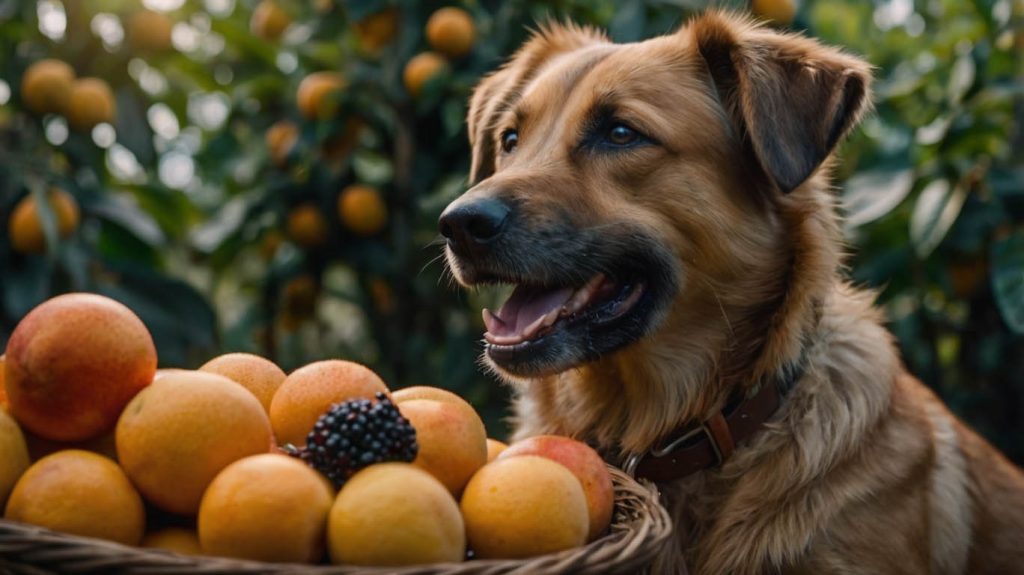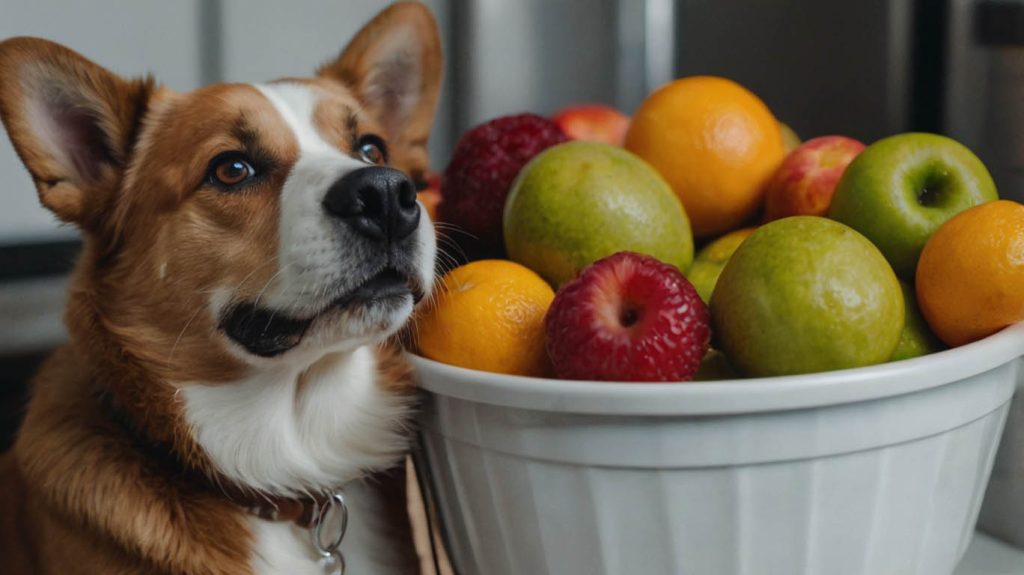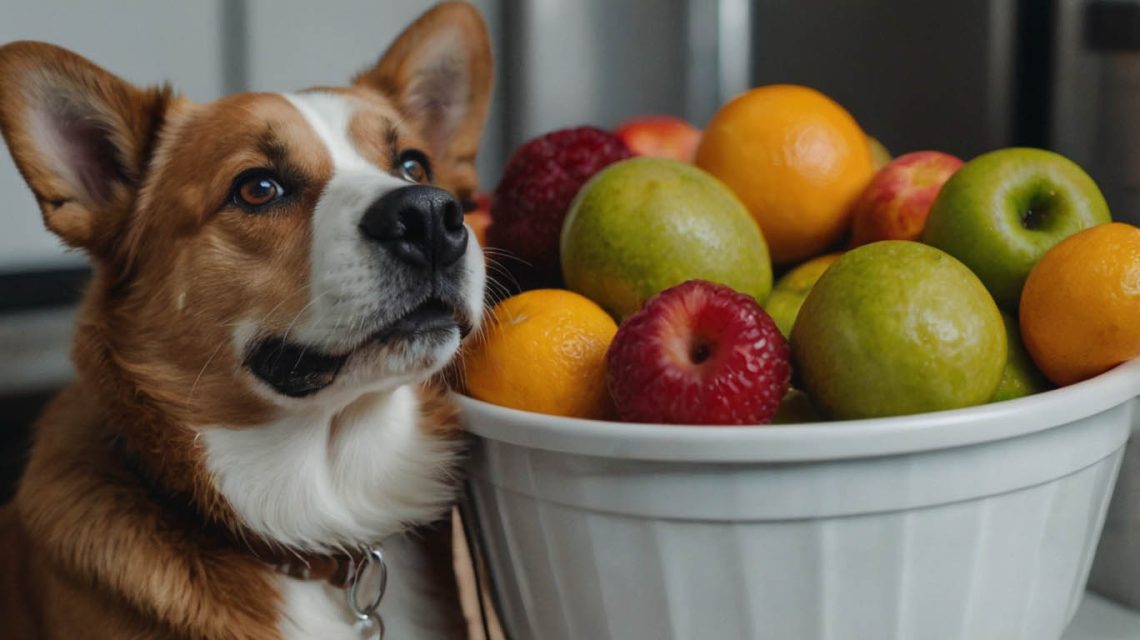The Ultimate Guide: What Fruits are Safe for Dogs?
The story is a daily scene in kitchens everywhere: you’re slicing up an apple for a healthy snack, and you feel the gentle but insistent pressure of a head on your knee. Your dog is looking at you with that all-too-familiar, heart-melting expression that says, “Just one bite?” Before you share a piece of your fruit salad, it’s a moment for every responsible owner to pause and ask the critical question: “What fruits are safe for dogs?” While sharing our food can be a wonderful bonding experience, the simple truth is that a dog’s digestive system is very different from our own. Some fruits that are superfoods for us can be incredibly dangerous for them.
This comprehensive guide will tell the complete story of sharing fruit safely with your canine companion. We will begin by providing a clear, vet-approved “safe list” of fruits that, when prepared correctly, can be a delicious and nutritious treat. Subsequently, and just as importantly, we will highlight the dangerous, toxic fruits that you must never, ever give to your dog. Furthermore, we will outline the essential rules for preparation and serving. Consequently, you will be empowered with the confidence to know exactly what fruits are safe for dogs and how to share them responsibly.
Why You Must Know What Fruits are Safe for Dogs
Before we jump into the “yes” and “no” lists, it’s vital to understand why this knowledge is non-negotiable for pet owners. Certain fruits contain compounds that are toxic to canines, even in small amounts. The most notorious examples are grapes and raisins, which can cause sudden and irreversible kidney failure. Other fruits have pits or seeds that contain toxic substances like cyanide or pose a serious choking or intestinal blockage risk.
Therefore, knowing what fruits are safe for dogs is a fundamental aspect of pet safety. It’s about preventing a simple act of sharing from turning into a medical emergency.

The “Yes” List: What Fruits are Safe for Dogs to Eat?
When prepared properly and given in moderation, the following fruits can be a wonderful, healthy addition to your dog’s treat rotation.
1. Apples (Core and Seeds Removed)
Apples are a fantastic, crunchy treat for dogs.
- Benefits: They are a great source of vitamins A and C, as well as fiber. The crunchy texture can also help clean your dog’s teeth.
- Crucial Preparation: You must remove the entire core and all seeds before serving. The core is a choking hazard, and the seeds contain trace amounts of cyanide.
2. Bananas
Many dogs love the sweet taste of bananas.
- Benefits: Bananas are packed with potassium, biotin, fiber, and copper.
- Serve in Moderation: Due to their high sugar content, bananas should be an occasional treat, not a daily snack. This is a key part of knowing what fruits are safe for dogs.
3. Blueberries
These small berries are a true superfood for your pup.
- Benefits: Blueberries are low in calories and rich in antioxidants, fiber, and phytochemicals, which support overall health and a strong immune system. Their small size makes them perfect for training.
4. Watermelon (Seedless and Rindless)
The perfect summer treat, watermelon is as hydrating as it is delicious.
- Benefits: At 92% water, it’s an excellent way to help keep your dog hydrated. It also contains vitamins A, B6, and C.
- Crucial Preparation: You must remove all seeds, which can cause intestinal blockages, and the entire rind, which is indigestible and a choking hazard.
5. Strawberries
These sweet, juicy berries are a safe and healthy option.
- Benefits: They are full of fiber and vitamin C. They even contain an enzyme that can help naturally whiten your dog’s teeth.
- Serve in Moderation: Like bananas, strawberries have a high sugar content, so they are best as a special treat.
6. Cantaloupe
This popular melon is a safe and nutrient-rich choice.
- Benefits: It’s low in calories and packed with water, fiber, and essential vitamins.
- Crucial Preparation: Be sure to remove the rind and all seeds before serving.

The “No” List: What Fruits are DANGEROUS for Dogs?
Knowing what fruits are safe for dogs is only half the story. Knowing which are toxic is even more important. Never, under any circumstances, feed your dog the following:
- Grapes and Raisins: These are extremely toxic to dogs and can cause sudden, acute kidney failure. The exact toxic component is unknown, making any amount potentially dangerous.
- Cherries: The pits, stems, and leaves of cherries contain cyanide. While the flesh itself is not toxic, the risk of your dog accidentally ingesting the dangerous parts is too high.
- Avocado: The pit, skin, and leaves of avocados contain persin, a toxin that can cause vomiting and diarrhea in dogs.
- Citrus (Peels, Stems, and Seeds): While a small segment of an orange is unlikely to cause harm, the acidic oils in the peels, stems, and seeds of citrus fruits (like lemons, limes, and grapefruit) can irritate a dog’s digestive system.
The ASPCA Animal Poison Control Center is an invaluable resource for a comprehensive list of toxic foods and plants.
The Golden Rules for Serving Fruit to Your Dog
Now that you know what fruits are safe for dogs, follow these rules to ensure a safe and enjoyable experience.
- The 10% Rule: Treats, including fruit, should never make up more than 10% of your dog’s daily caloric intake. Their primary nutrition must come from their complete and balanced dog food.
- Wash Everything: Thoroughly wash all fruits to remove pesticides and bacteria.
- Prepare Properly: Remove all seeds, pits, cores, stems, and rinds.
- Cut into Appropriate Sizes: Dice the fruit into bite-sized pieces to prevent choking.
- Introduce Slowly: The first time you offer a new fruit, give only a very small piece and monitor your dog for any signs of an upset stomach.
A World of Healthy Treats Awaits
The story of your dog’s diet can be exciting and varied. By understanding what fruits are safe for dogs, you can confidently introduce a new range of healthy, delicious, and natural treats into their life. From the antioxidant boost of blueberries to the hydrating power of watermelon, these snacks are a wonderful way to show your love and support your dog’s health, one safe and tasty bite at a time.
What is your dog’s favorite safe fruit to snack on? Share their top picks in the comments below! For more on safe and unsafe foods, be sure to check out our ultimate guide on [Human Foods Your Dog Can (and Can’t) Eat].


